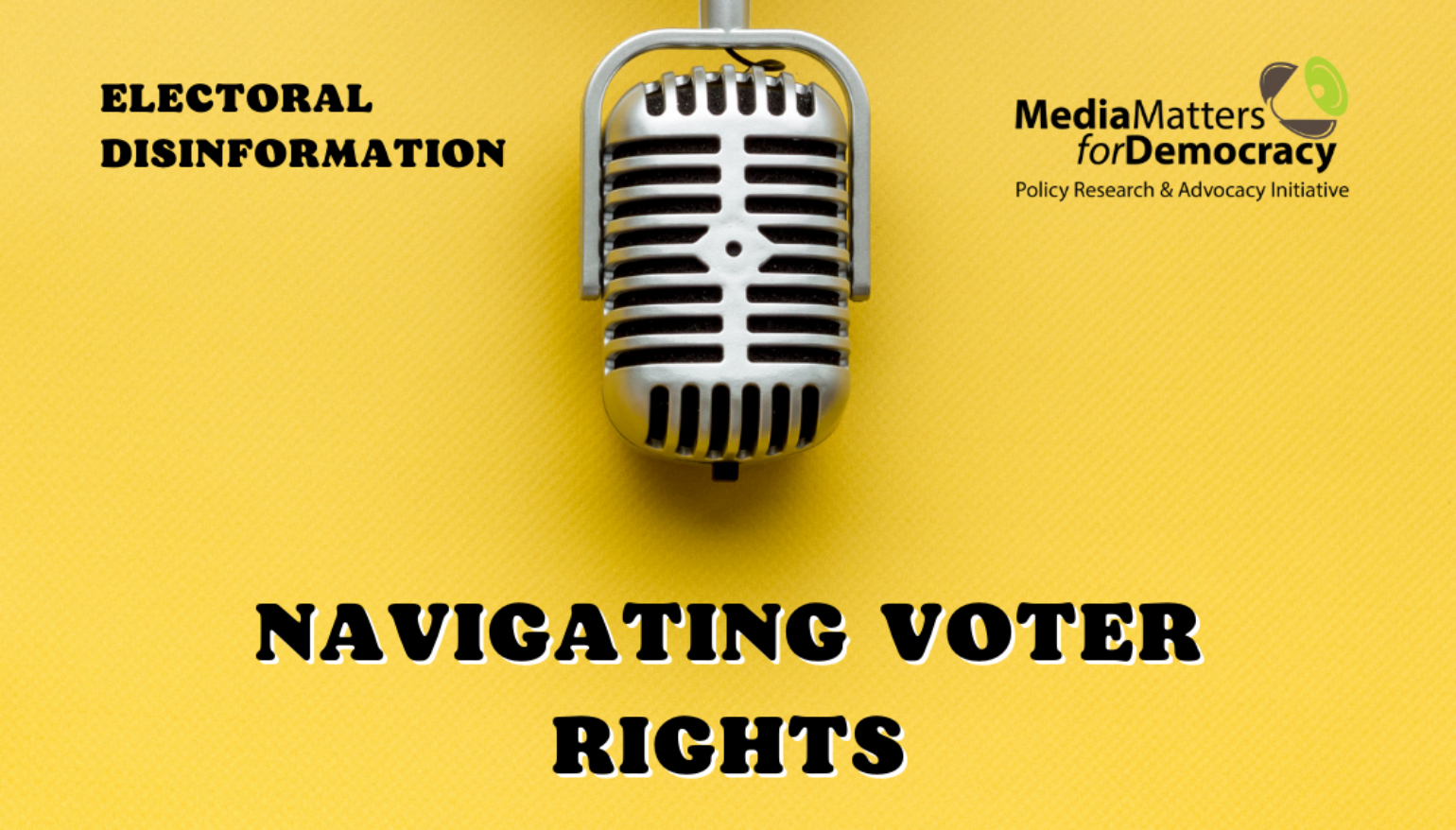17th October, 2023
Islamabad, Pakistan — Media Matters for Democracy (MMfD) hosted an insightful session, titled “Navigating Voter Rights”, on Monday, 16th October, 2023. The session was the second episode in MMfD’s exclusive webinar series, “Let’s Talk Electoral Disinformation”, which is aimed at highlighting the challenges facing electronic media during electoral processes and educating the public on their voting rights.
Moderated by MMfD’s Communications Manager Ayesha Khalid, Navigating Voter Rights featured Mudassir Rizvi, who is director of programs at the Trust for Democratic Education and Accountability (TDEA) of the Free and Fair Election Network (FAFEN). The episode focused on the rights of voters and highlighted the basic voting information of which every citizen, eligible to cast vote, should be aware.
The discussion revolved around both the rights of voters as enshrined in the Constitution of Pakistan and procedures they should follow should an issue arise with their national identity card (CNIC), which is mandatory to exercise the right to vote. Rizvi started with the most fundamental right of a voter: vote secrecy. He remarked that it is an individual’s right to vote for the candidate of their choice and that they should be free from any kind of influence, coercion, and fear.
Rizvi said the electoral landscape is gradually evolving in Pakistan, where individual choices are breaking dominance within the households and family members are at liberty to elect the leader of their choice, in contrast to how voting in families worked 20 years previously. The direct and uninterrupted approach to electoral candidates through social media platforms has significantly shaped the voters’ perception. Rizvi maintained, however, that progress to break free from familial influence still has a long way to go.
Rizvi also spoke at length about the procedures that should be adopted in case of change in the information on one’s CNIC, primarily residence, as it determines a voter’s constituency. He explained the purpose of Form-21 (Transfer of Vote), which is used to register the vote either on an individual’s permanent or current address (in case they are both different on the identity card). Form-23 (Correction of Particulars), on the other hand, can be filled and submitted at the deputy commissioner’s office for the rectification of personal information.
Voting information can be obtained by sending a text message to 8300.
For more on voting rights, watch the full episode here: https://www.youtube.com/watch?v=fd8CGLrcwLU
About the series. The “Let’s Talk Disinformation” webinar series focuses on issues, threats and challenges in the context of the forthcoming general elections in Pakistan, especially amid the rising convenience and accessibility afforded by social media platforms and evolving dynamics within the news media industry.
Placing a particular emphasis on users, the series attempts to bring to light how misinformation and coordinated disinformation campaigns during elections can potentially influence a voter’s perception, especially when there is a lack of digital literacy and awareness. The series also aims to educate people on their rights as a voter.

